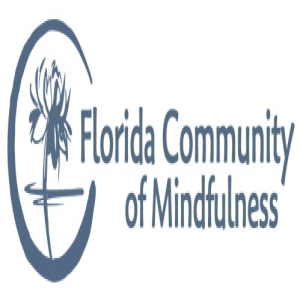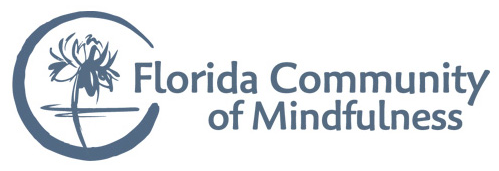Episodes

Wednesday Dec 16, 2020
Getting Unstuck from Our Hindrances (2020)
Wednesday Dec 16, 2020
Wednesday Dec 16, 2020
11-22-20
The path of Dharma practice and meditation isn’t always a smooth journey. Even as our mindfulness and self awareness grows, our progress on the path may be impeded by factors such as self doubt, wrong views, unresolved personal issues, or other obstacles. Seeing and skillfully overcoming these challenges will enable us to reap the fruits of our spiritual journey: a mind that is awake, clear, compassionate and wise.
In this talk from the three-day on-line retreat "Getting Unstuck: Meeting the Challenges of Practice", Fred shares with us how to identify common obstacles and investigate the places where we get stuck. Fred teaches us how to let go of wrong assumptions about ourselves and practice, release self-defeating behaviors and ineffective strategies, and energize our practice with new commitment, self-awareness and diligence.

Monday Nov 16, 2020
Buddhism and Science: Societal and Personal Implications (2020)
Monday Nov 16, 2020
Monday Nov 16, 2020
11-15-20
In this talk, Dharma teacher Fred Eppsteiner shares and comments on the Buddhist approach to life which is very needed today. It’s not a philosophical or religious approach, but has to do with the unfolding of life, society, and the sustaining of our planet.
Fred shares with us the Buddha's teachings from the Kalama Sutta. In the Kalama Sutta the Buddha has given us a template for life. The Buddha has given us tools based on direct observation and direct experience. Fred encourages us to ask ourselves "Are we willing to accept the facts? Who do we believe? With so many saying so many different things, how can I know what to believe? How do we know what is true?"
Are we willing to check ourselves against reality? Do I live in reality, or in my interpretation of reality? Do I base my life on the facts?
We need to have a willingness to live in reality. We can ask ourselves, in my own life, how much do I operate from reality over beliefs? We need to touch reality and life deeply and directly.

Monday Nov 02, 2020
Monday Nov 02, 2020
11-1-20
In this talk, Dharma teacher Fred Eppsteiner shares with us teachings from the Order of Interbeing found in Thich Nhat Hanh's book "Interbeing: The 14 Mindfulness Trainings of Engaged Buddhism."
According to the Charter of the Order of Interbeing, the aim of the Order is to make Buddhism relevant to our own time. It's members study, experience, and apply it in a versatile and effective way in their own life and that of society. They have the aspiration of a bodhisattva to help others.
The Charter lists four principles as the foundation of the Order: nonattachment from views; direct realization on the nature of interdependent origination through mindfulness and meditation; appropriateness; and Skillful Means.
Fred examines and explains each of these principles while showing us how they can become relevant for our very life here and now healing the collective pain of America.

Thursday Oct 29, 2020
Simplicity and Ease: Reflections on a Wisdom Retreat (2020)
Thursday Oct 29, 2020
Thursday Oct 29, 2020
10-25-20
In this talk, Dharma teacher Fred Eppsteiner shares with us the meaning and significance of a Wisdom Retreat.
Retreat is a time of concentrated investigation into the nature of mind - of reality. It has many aspects: meditations to stabilize and calm the discursive mind; meditations to analyze the mental and sensory continuum; meditations to directly experience the mind nature; meditations to completely rest the mind. Retreat is disciplined experience so that our ordinary habits do not take over and it is rhythmic so that the work of mindfulness, concentration and insight can continue to be refined day after day.
Since the time of the Buddha, countless teachers have pointed out the innate simplicity and spontaneous wisdom of our true mind. Unfettered by conditioning and emotional reactivity, this mind has the capacity to guide and support us naturally in living an awakened life. Utilizing the pith direct teachings of Gyaltsap Rinpoche (1871-1926), a modern master of the Great Perfection tradition, during this five day retreat, Fred guided participants into the world of the Buddha Mind and show how to integrate this understanding into daily life.

Monday Oct 05, 2020
Anger as a Tool of Compassion (2020)
Monday Oct 05, 2020
Monday Oct 05, 2020
10-4-20
In this talk at the Tampa Center, Dharma teacher Fred Eppsteiner teaches us about the emotional pull of anger and how it is the source of so much suffering. Anger comes from the self, and reduces living beings to “enemies.” Fred explains wrathful compassion which arises through compassion and wisdom. This wrathful compassion is not self-concerned, and does not blame, separate, and hate others. It is out of concern for others, the world, and all living beings that this wrathful emanation arises.
Fred teaches how to navigate the world with so much emotionality in it, though cultivating stability and clarity by asking “Is it true?” Our practices of Dharma are not just “add ons” but are necessities for living a wholesome life. Fred encourages us to set up boundaries, for how we use technologies, devices, and media. We can as “is this nourishing me in wholesome ways?”
Fred explains how to ground ourselves in our present moment reality with our intentions and mindfulness. So that we can cultivate a peaceful and clear mind in which we can then use as the base for interactions in the world.

Monday Sep 28, 2020
The World Is Burning: Buddhist Teachings on Fire (2020)
Monday Sep 28, 2020
Monday Sep 28, 2020
9-13-20
In this talk at the Tampa Center, Dharma teacher Fred Eppsteiner shows us how we can look at fire and the meaning of fire in a different way. Utilizing Dharma teachings such as the Fire Sermon from the Pali Canon, the Parable of the Burning House as presented in the Lotus Sutra, and from the Japanese Zen tradition, a story from Hakuin Ekaku of the 17th and 18th century.
In the Fire Sermon, the Buddha taught of the fire of desire and greed, the fire anger, the fire of ignorance, and the fire of anger. Fred asks us “Is it true that our mind is on fire?” and to investigate how we feed these fires in our real experiences, and shows us ways to no longer feed these fires which cause so much suffering in our lives and the lives of others. Are we cool or are we hot and burning?

Thursday Sep 03, 2020
Taking Self Out of the Life Equation (2020)
Thursday Sep 03, 2020
Thursday Sep 03, 2020
8-30-20
The Buddha’s teachings tell us that our belief in and identification with self as a permanent, solid entity inhabiting a world with other solid selves is a fundamentally mistaken view. Moreover, the identification with this fictional entity and our overriding concern with protecting and satisfying it is the major source of our dissatisfaction, confusion and affliction in life.
In this retreat talk, Fred teaches that by learning to remove self from the life equation, we can significantly diminish our experience of life through the distorting filter of self-absorption and ego-centeredness. A life of greater ease, openness and happiness now becomes possible.

Monday Aug 10, 2020
Monday Aug 10, 2020
8-9-20
Fred continues teaching on the sixth mindfulness training from the Order of Interbeing, “Taking Care of Anger.”
Fred shares with us the two-fold training. First, when anger arises, we take care of it. Secondly, we recognize and transform the seeds of anger that lie deep in our consciousness through the practice of looking deeply.
When we look deeply at anger, understanding has a chance to blossom. Understanding that everything is arising because of causes and condition. Out of that mind of understanding comes patience and freedom.
We look into the causes and conditions of the other person, we look deeply into their suffering, and with the eyes of compassion we ask “What can we do to relieve their suffering? How can we be of help?”
Fred encourages us to make an effort to transform the seeds of anger in us, and to be diligent in our practice to eradicate this destructive anger. We do not cultivate anger, nor do we nourish the anger in others and our society.

Monday Aug 03, 2020
Monday Aug 03, 2020
Fred 8-2-20
In this talk, Dharma Teacher Fred Eppsteiner continues with the talk from last week on Patience. Fred shares with us teachings from the Fourteen Mindfulness Trainings of the Order of Interbeing by Thich Nhat Hanh; "Taking care of anger."
Fred encourages us as individuals and for society, to do our best to understand anger and make the commitment to give up anger, impatience, annoyance and take up the practice of love, compassion, and understanding.
By putting down our story, thoughts, and anger in this moment I am clear. There is space. And from here I can clearly look at the suffering of the other person. Without the filters and projections of our own “stuff.” Now we can be present to them, and just look with the eyes of compassion.
The Sixth Mindfulness Training: Taking Care of Anger
"Aware that anger blocks communication and creates suffering, we are committed to taking care of the energy of anger when it arises, and to recognizing and transforming the seeds of anger that lie deep in our consciousness. When anger manifests, we are determined not to do or say anything, but to practice mindful breathing or mindful walking to acknowledge, embrace, and look deeply into our anger. We know that the roots of anger are not outside of ourselves but can be found in our wrong perceptions and lack of understanding of the suffering in ourselves and others. By contemplating impermanence, we will be able to look with the eyes of compassion at ourselves and at those we think are the cause of our anger, and to recognize the preciousness of our relationships. We will practice Right Diligence in order to nourish our capacity of understanding, love, joy and inclusiveness, gradually transforming our anger, violence and fear, and helping others do the same.”

Monday Jul 27, 2020
Monday Jul 27, 2020
7-26-20
Patience comes out of understanding that each person and each situation is the way they are due to causes and conditions. Once one understands that everything including ourselves is the product of causes and conditions, we have the freedom to do things another way. In this moment, we can accept this reality as it is. How this moment is showing up is due to causes and conditions. In this place of understanding and acceptance, now there is space. Space in which there is room to make change, to respond to the world with wholesomeness, and to heal and transform.

